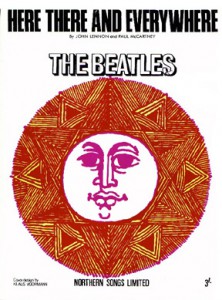
"Here, There and Everywhere" is a song by the English rock band the Beatles from their 1966 album Revolver. A love ballad, it was written by Paul McCartney and credited to Lennon–McCartney. McCartney includes it among his personal favourites of the songs he has written. In 2000, Mojo ranked it 4th in the magazine's list of the greatest songs of all time.

Commodores is the fifth studio album by the Commodores, released in 1977. The album spent eight weeks at the top of the R&B/soul albums chart, the second of their albums to do so, and was their first Top 5 pop album. There is also a previously released extended version.

Slapp Happy is a studio album by German/British avant-pop group Slapp Happy, recorded at Virgin Records' Manor Studio in 1974.

Jefferson Airplane Takes Off is the debut studio album by the American rock band Jefferson Airplane, released on 15 August 1966 by RCA Victor. The personnel differs from the later "classic" lineup: Signe Toly Anderson was the female vocalist and Skip Spence played drums. Both soon left the group—Spence in May 1966, Anderson in October—and were replaced by Spencer Dryden and Grace Slick, respectively.
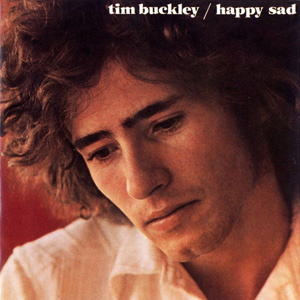
Happy Sad is the third album by American singer-songwriter Tim Buckley, released in April 1969. It was recorded at Elektra Sound Recorders in Los Angeles, California and was produced by former Lovin' Spoonful members Zal Yanovsky and, coincidentally, his subsequent replacement Jerry Yester. It marked the beginning of Buckley's experimental period, as it incorporated elements of jazz that he had never used before. Many of the songs here represent a departure from the binary form that dominated much of his previous work.
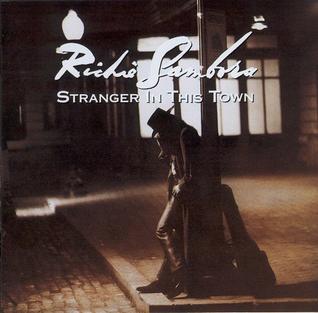
Stranger in This Town is the first solo studio album by Richie Sambora, the guitarist from the New Jersey band Bon Jovi. The album was released in 1991, while Bon Jovi was on a 17-month hiatus. Jon Bon Jovi also released a solo album, Blaze of Glory (1990), during this period.

The Helio Sequence is an American indie rock duo from Beaverton, Oregon, signed to Sub Pop. The band consists of Brandon Summers on vocals and guitars and Benjamin Weikel on drums and keyboards.

Rock Animals is a studio album by Shonen Knife. It was released on September 8, 1993, in Japan. It peaked at number 59 on the Oricon Albums Chart, as well as number 39 on Billboard's Heatseekers Albums chart.

"No Matter What" is a song originally recorded by Badfinger for their album No Dice in 1970, written and sung by Pete Ham and produced by Mal Evans.

Kissin Time is the 15th studio album by British singer Marianne Faithfull.

Days May Come and Days May Go is a compilation album by the English hard rock band Deep Purple, released in 2000.

The 200 Motels soundtrack to Frank Zappa's film 200 Motels was released by United Artists Records in 1971. The original vinyl release was a two-record set, largely containing alternating tracks of rock music preformed by the Mothers of Invention and symphonic music performed by the Royal Philharmonic Orchestra conducted by Elgar Howarth, all composed and orchestrated by Zappa. The album peaked at No. 59 on the Billboard 200, though reviewers deemed it a peripheral part of Zappa's catalog. Like the film, the album involves the theme of a rock band on tour and a loose storyline about The Mothers of Invention going crazy in the small town of Centerville and bassist Jeff quitting the group, as did his real life counterpart, Jeff Simmons, who left the group before the film began shooting and was replaced by actor Martin Lickert for the film.
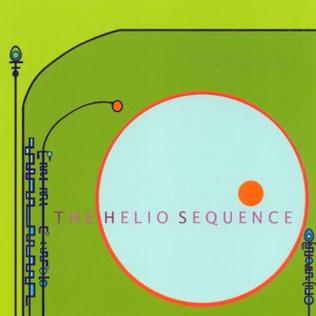
Com Plex is the first album by indie rock band The Helio Sequence. It was released on September 5, 2000, on Cavity Search Records. It contains a cover of the Beatles song "Tomorrow Never Knows".

Once Upon a Dream is the fourth studio album by the rock band the Rascals, released February 19, 1968. The album rose to number 9 on the Billboard Top LPs chart and number 7 on the R&B chart.

Portrait is the second album by the American pop group The Walker Brothers. Released in 1966 the album was their most successful and reached number three on the UK Albums Chart. The group's musical accompaniment was directed by Ivor Raymonde and Reg Guest and produced by John Franz. Receiving good to mixed reviews the album was first released in both Mono and Stereo LP formats in August 1966. The album was later released on CD having been remastered and expanded in 1998. The sleeve notes were written by Keith Altham with photography by Dezo Hoffmann.

The Letter/Neon Rainbow is the debut album by American rock band the Box Tops, released in 1967. Following "The Letter" reaching number one on the singles charts, The Letter/Neon Rainbow was quickly assembled for a follow-up. The album peaked at number 87 on the Billboard Pop Albums chart in 1968.
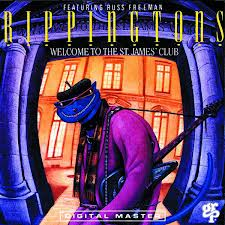
Welcome to the St. James' Club is the fourth album by the American jazz group the Rippingtons, released in 1990. It reached No. 1 on Billboard's Jazz chart. The group supported the album with a North American tour. The album was produced by Russ Freeman, who chose to give the songs a more rhythmic direction.
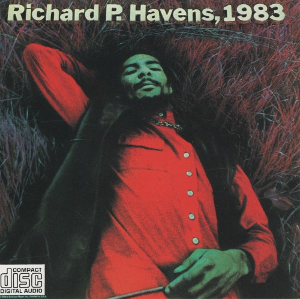
Richard P. Havens, 1983 is a 1968 double album set by folk rock musician Richie Havens featuring a combination of studio recordings and live material recorded in concert during July 1968. The album combined original material with several of the covers for which Havens was known. Notable songs include the singles "Stop Pushing and Pulling Me" and "Indian Rope Man", the latter of which has been multiply covered under its own name and in retooled identity as "African Herbsman." The genre-bending album was critically and commercially well-received, reaching #80 on the Billboard "Pop Albums" chart. Initially released on the Verve label, it has been reissued multiple times in various formats, including by Verve subsidiary Verver Forecast/PolyGram and Australian label Raven Records. It has also been compiled with albums Mixed Bag and Something Else Again in multi-cd set Flyin' Bird: The Verve Forecast Years on the Hip-O Select/Universal label.

Commitment is an album by American singer Bobby Darin, released in 1969. It was released by Darin's own Direction label and did not chart.
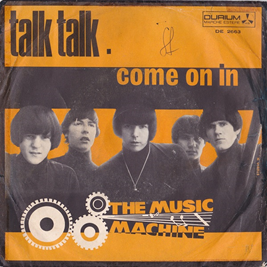
"Talk Talk" is the debut single of American garage rock band the Music Machine. It was released in November 1966, and produced the band's only Top 20 hit on the Billboard Hot 100. The song was included on their debut album, (Turn On) The Music Machine.


















